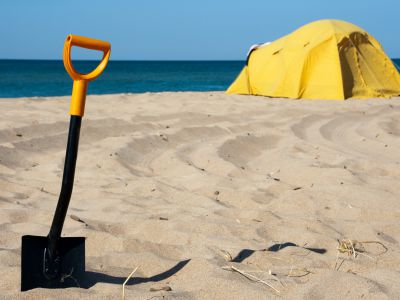Free Camping: instructions for use At least once in life, any camping enthusiast has evaluated the "free" hypothesis that is free camping. But it is not just the "zero budget" aspect that attracts the more adventurous. The satisfaction of choosing where to pitch your tent, sleeping surrounded by nature and waking up feeling part of the surrounding environment is priceless.
At least once in life, any camping enthusiast has evaluated the "free" hypothesis that is free camping. But it is not just the "zero budget" aspect that attracts the more adventurous. The satisfaction of choosing where to pitch your tent, sleeping surrounded by nature and waking up feeling part of the surrounding environment is priceless. But where can you camp for free? You must choose the destination carefully. In many countries it is illegal and punished with expensive fines, in others it is tolerated or authorised under certain rules. Free camping in Italy: how does it work? There are no regulations at the national level: the decision on the matter is the responsibility of the individual Regions. In theory where no explicit legislation has been approved -that must be made known by prohibition notices- free camping is possible. But be careful as it is often necessary to make a request or notify the relevant Municipality. In some areas, you can bivouac, i.e. pitch the tent exclusively from sunset to sunrise (less than 12 hours). But even in this case it often depends on the rules of local authorities. Be careful also about free camping on the beach. This is usually not allowed in Italy. It is a good idea to always inquire before starting to pitch the tent. What should you take with you to do free camping? Doing free camping is an experience that puts you in touch with your "wild" side. But if on the one hand freedom is fascinating, organisation is also very important, so be sensible, do not set off on an adventure without having provided for every eventuality. First of all, always test your equipment and your ability to put up and take down the tent. Think carefully about the weight of the backpack, the size of the baggage and the equipment you need in case of emergencies. You will have to think about everything, because in this case there will not be the person in the next tent to come to your rescue. How and when to choose where to put up the tent? A mistake not to be made is to find yourself in the middle of the night and unable to go to sleep for the fear of not being safe. Think carefully about choosing where to sleep: have you selected an area that is too isolated or too noisy, close to an anthill or near a river? If you have stopped at a random spot in the dark, you will only discover the true nature of the place the morning after. Always respect nature and do not take unnecessary risks. Free camping and campfire: Yes or no? Unless you are 100% sure do not tempt fate. Fire is a potential danger for you, for those who live nearby and for nature. If there is a sign indicating fires are prohibited, there is probably a good reason for it. So forget the barbecue and think of an alternative solution. To avoid having unwanted guests, do not leave food and trash on the ground but try hanging it as high up as possible. Above all, once the tent has been taken down, try not to leave a trace of your passage. If, at the last moment, you do not feel like it, there is always an alternative. You should be aware that when you do free camping, you run the risk of getting very high fines simply for not having seen (or having ignored) a ban, but also of suffering from the cold after a bivouac on the beach because the sand becomes icy at night and releases moisture, or you may become easy prey for fleas, ticks and other insects lurking in the woods. If you once again choose the comfort of the camping site, no one will judge you badly! |
